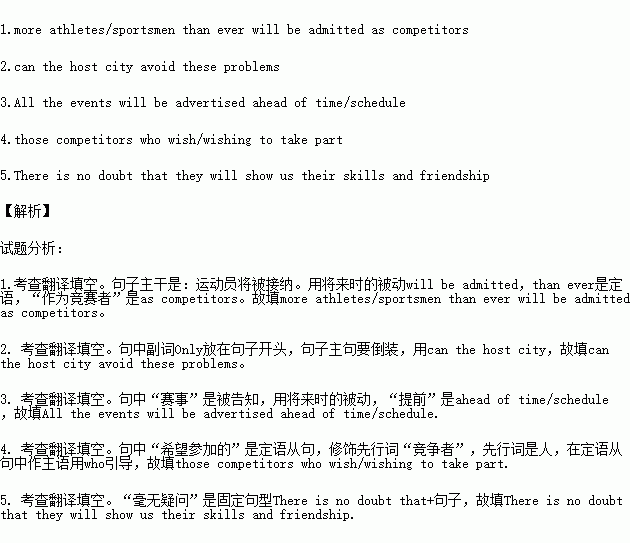题目内容
根据所给中文,在空格内填入适当的句子,注意语法是否正确及上下文是否连贯。
During the next Summer Olympics, 1.__________________________(比以往任何时候都多的运动员将作为竞赛者被接纳). This may cause problems for the host city. Only by taking special measures 2.__________________________(主办城市才能避免这些问题). 3.____________________(所有的赛事将提前被广而告之) so visitors can buy the tickets for the events they want to see earlier. The old rules and regulations(规则) for the athletes will be replaced with new ones. Many trips and visits will be organized for 4.__________________(希望参加的那些竞争者). We know that the athletes deserve to have all the care and attention we can offer them. 5.__________________(毫无疑问,他们将向我们展示他们的技术和友谊).
练习册系列答案
相关题目


